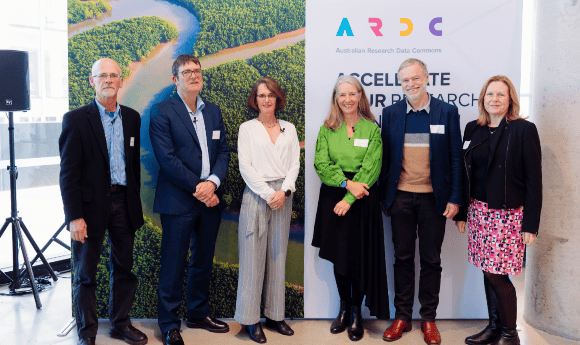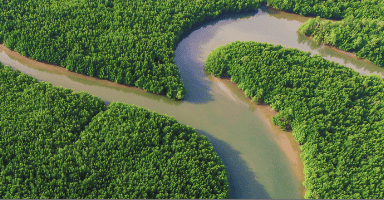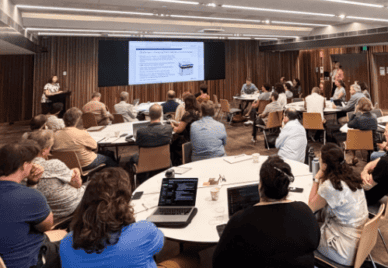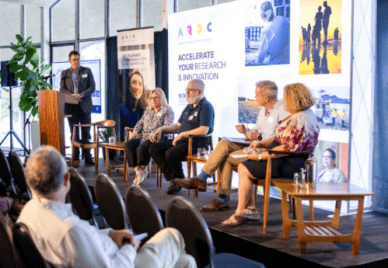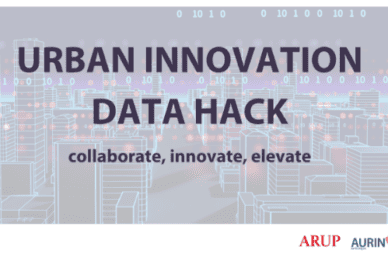
Experts from academia, industry and government discussed translation pathways for environmental data at the first ARDC Leadership forum for 2023.
The panel of respected and knowledgeable speakers shared the steps needed to improve the collection and flow of environmental data and data products to enable optimal translation to government and industry. They discussed lowering transaction costs of data access, methods of systematically applying trust and realising the value of all sectors working together.
The facilitator and panel members were:
- Emeritus Professor Stephen Dovers FASSA, Fenner School of Environment and Society, ANU (facilitator)
- Kylie Galway, Director – Biodiversity and Nature Positive Leader, Aurecon
- Associate Professor Michael Vardon, ANU College of Science
- Professor Richard Kingsford, Director of the Centre for Ecosystem Science, UNSW
- Jane Coram, Head, Environment Information Australia, Department of Climate Change, Energy, the Environment and Water (DCCEEW)
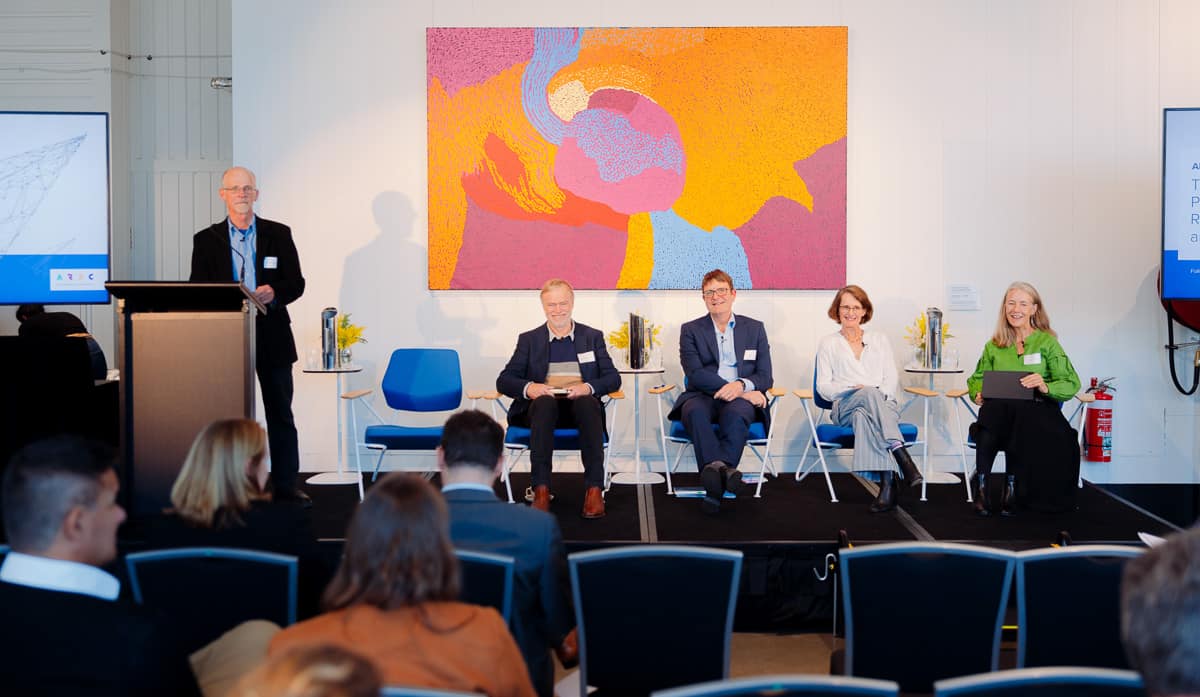
In her introduction to the Forum, Rosie Hicks, CEO of the ARDC, said, “This leadership forum intersects with the ARDC strategy of focusing our expertise and our capability into thematic areas. The Planet Research Data Commons provides national-scale data infrastructure for earth and environmental research and decision making. It builds upon the ARDC’s previous work in earth and environment-related research data infrastructure. The Planet RDC brings together research, government and industry to develop systems and processes that make data more available and speed the development of analytics and models. This will help us understand the environment and address some of the most complex, interconnected and integrated challenges facing society.
“There’s a pressing need for all of us across research, government and industry to work together to tackle a long list of significant issues: climate change, agricultural productivity, biosecurity risks, a growing human population and related land use change, transitioning to new energy systems, declining biodiversity, and understanding the importance of marine coastal and freshwater environments for ecosystem services.”
Hamish Holewa, Director of the ARDC Planet Research Data Commons, emphasised the need for a common framework and language in order to effectively collaborate and share data between different regions, industries, and government entities.
“The shared analytical framework for the environment (SAFE Framework) is vital for consistent data handling procedures and communication methods across sectors,” said Mr Holewa. “We also have the challenge of integrating different classifications and metrics used by various organisations, which can hinder effective collaboration and information sharing. Standardised measurements and timely data are crucial for making informed decisions and addressing environmental challenges. Overall, we need greater coordination and alignment in order to bridge the gap between research, industry, and government sectors.”
Watch the Recording of Translation Pathways Between Research, Industry and Government
You can watch the forum in full here:
A Christmas Wish List for Environmental Information
In summing up the discussion, Prof Dovers said, “I’m going to propose that most of the challenges aren’t different in kind than they were 20, 25 years ago, but we have very different capabilities and much larger opportunities. And it’s not a data or technical issue as much as a cultural issue I would propose.”
To wrap up the forum, Prof Dovers asked the panellists for the one thing they would like for Christmas in the environmental information space.
Prof Kingsford: I’d like a map of Australia where you could find all the data that there was for this point, all historical points, and be able to predict what’s going to happen in the future. It would help us make much better decisions.
Ms Galway: Respecting, listening and collaborating with all members along the supply chain. Because unless you get them in the room together to work out where you’re going, how you’re going to get there, and who needs to be involved, we’re going to be still sitting here in 20, 30 years. We need to get into a room, respect each other, really listen, learn what their particular problems are, and work together as a collective force. We have to look at the bigger picture.
Ms Coram: I concur with Richard Kingsford. The national map with everything on it would be fabulous, but I don’t think I’m going to get that for Christmas this year. On the pathway to doing that, I would love us to have a national plan for how we share and combine national environmental data to build that national map.
We’ve all got fabulous shared motivation. But how we translate that into the steps that we can do in our respective sectors is vital to actually build that map that allows us to say, for anywhere in Australia, how we’re doing environmentally.
We’d like to thank our panellists and participants for their contributions to this insightful conversation.
Join our next forum: Trusted Research Environments for Health and Medical Research
You are invited to join the next ARDC Leadership forum on 5 September in Melbourne/Naarm and online to hear thought leaders discuss trusted research environments for sensitive health and medical data.
Facilitator and Speakers:
- Prof Joanna Batstone, Monash Data Futures Institute
- Dr Charmaine Tam, Telstra Health
- Prof Dougie Boyle, University of Melbourne
- Prof Jim Buttery, Murdoch Children’s Research Institute
- A/Prof Bernie Pope, The University of Melbourne
Register now to secure your spot >
Here are some photos from the Leadership Forum.
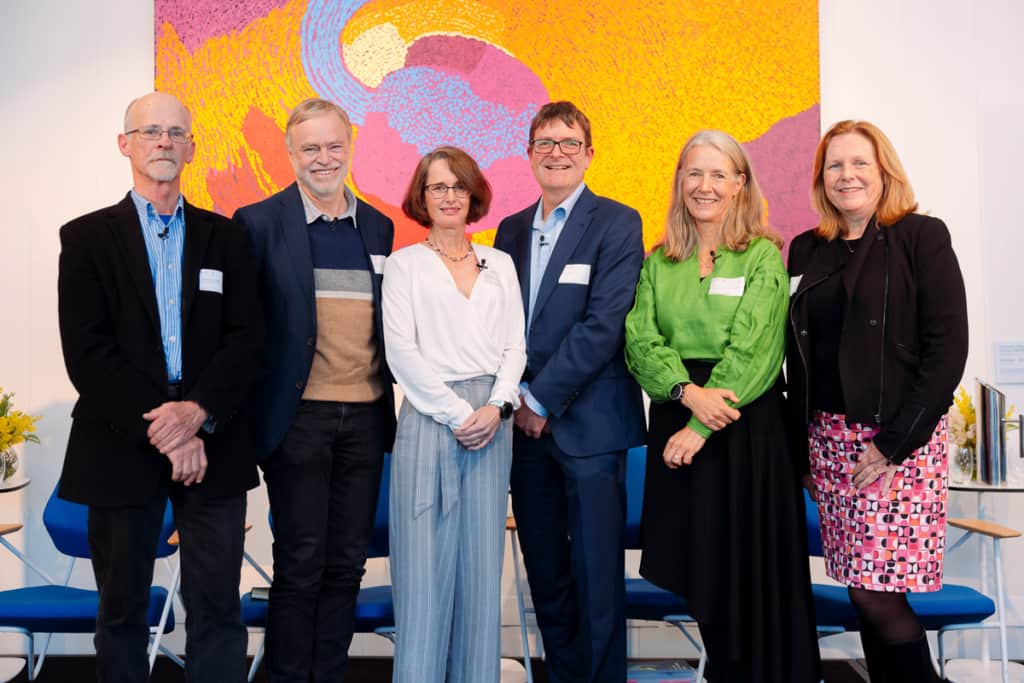
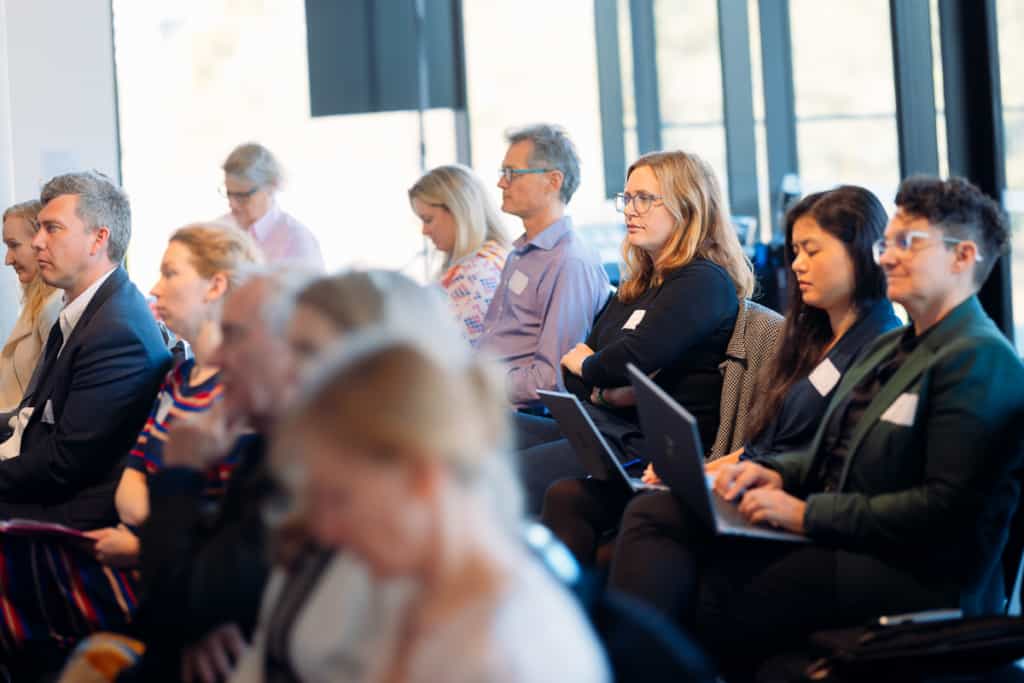
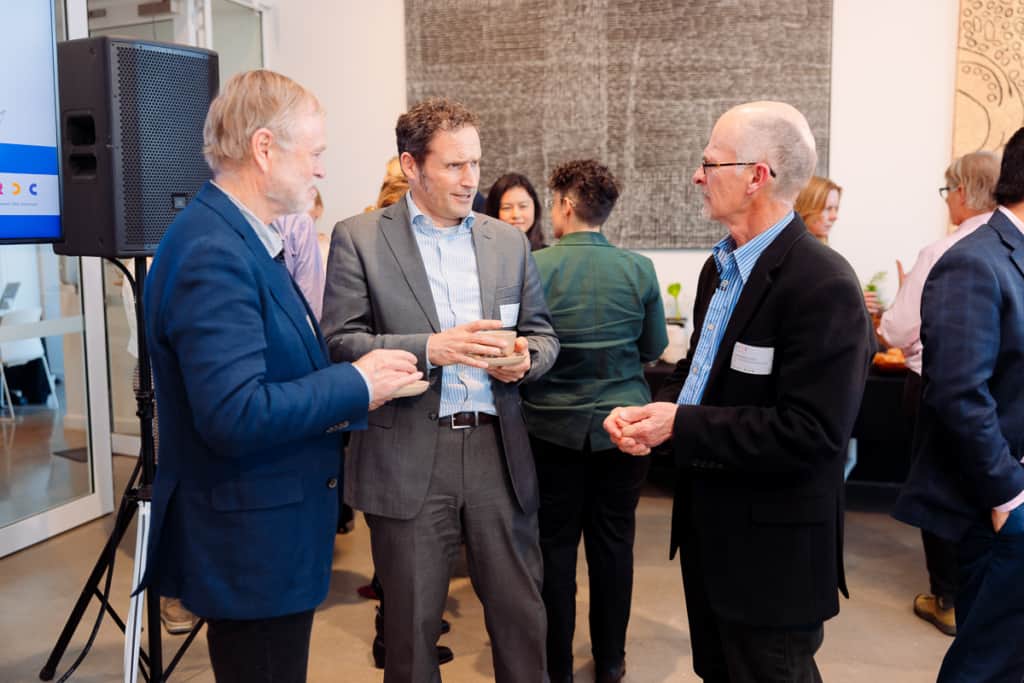
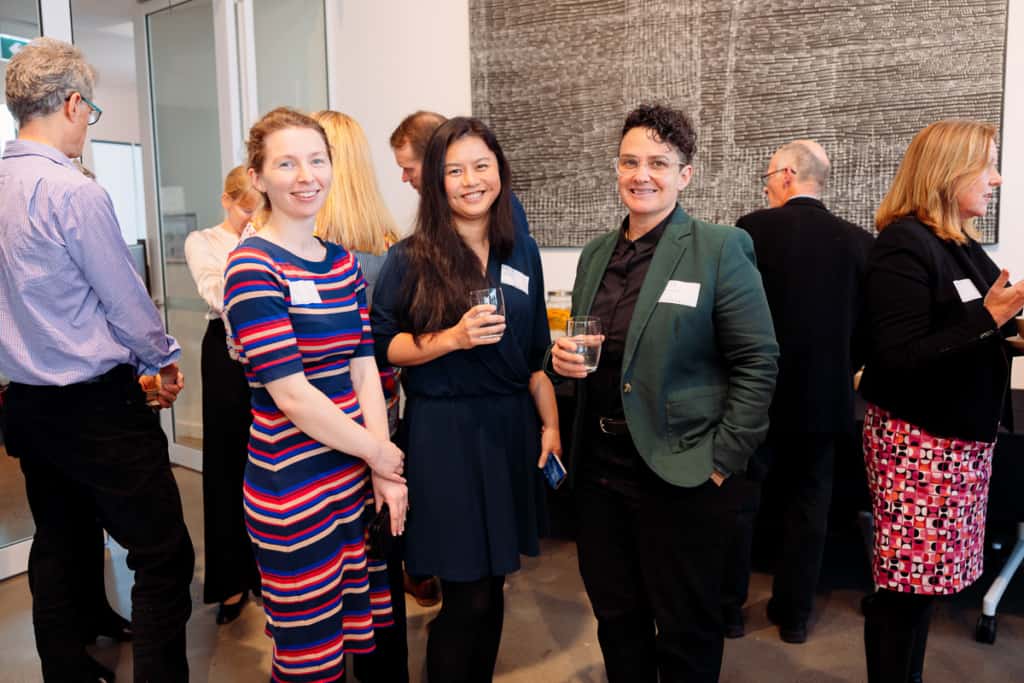
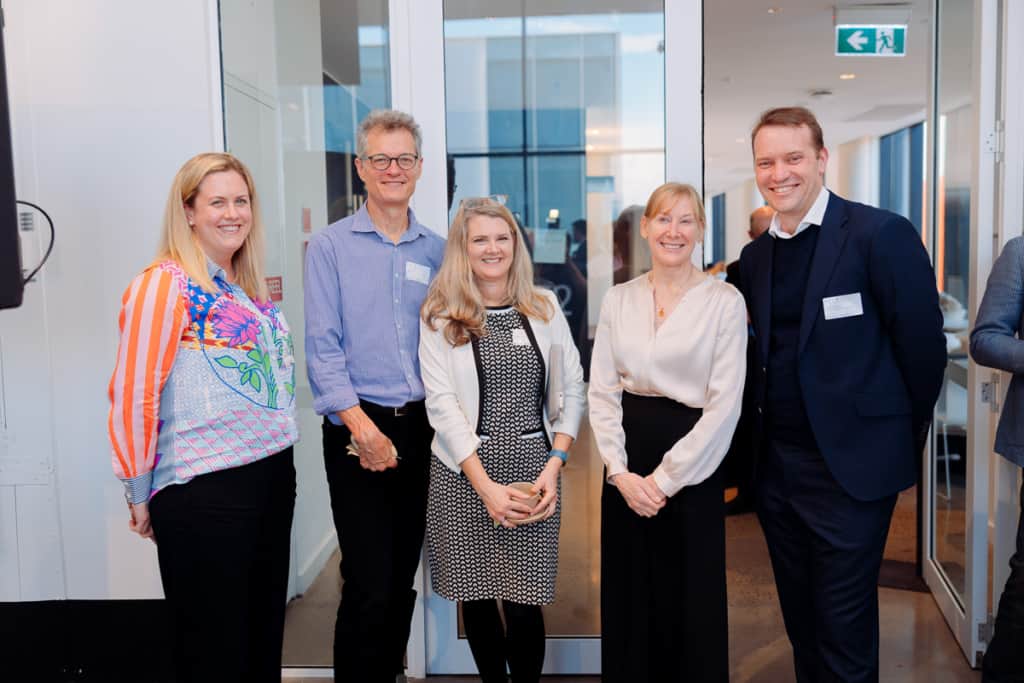
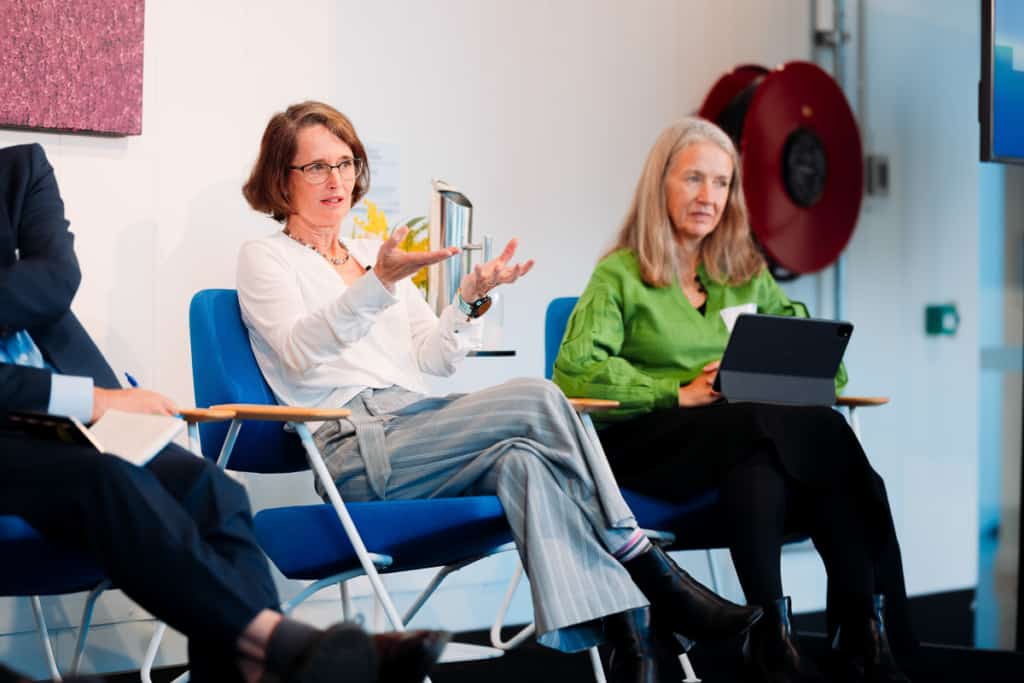
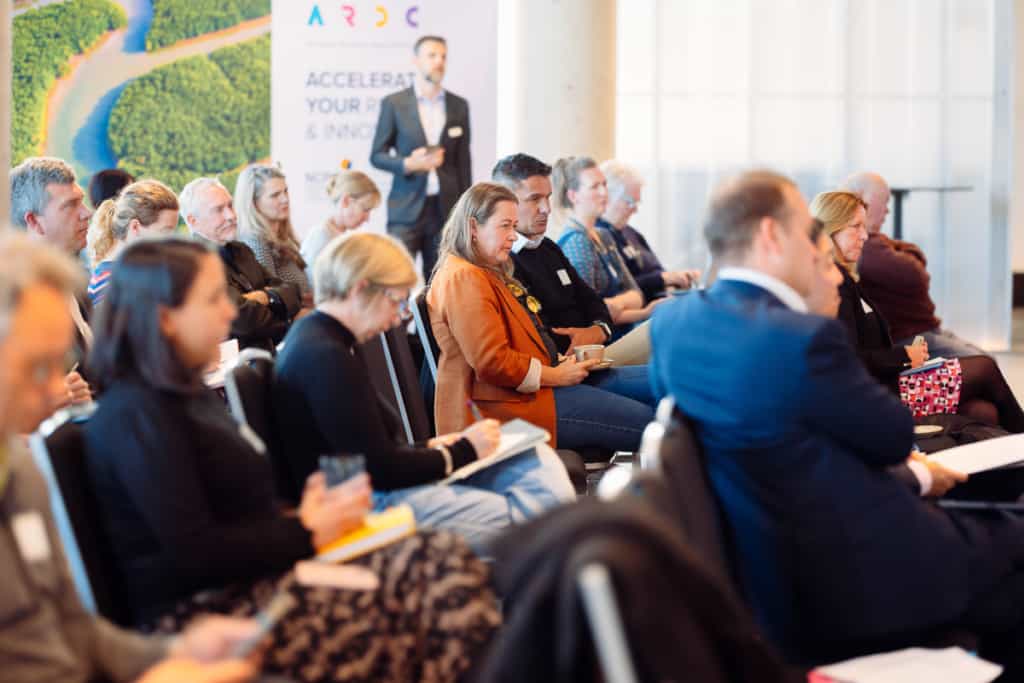
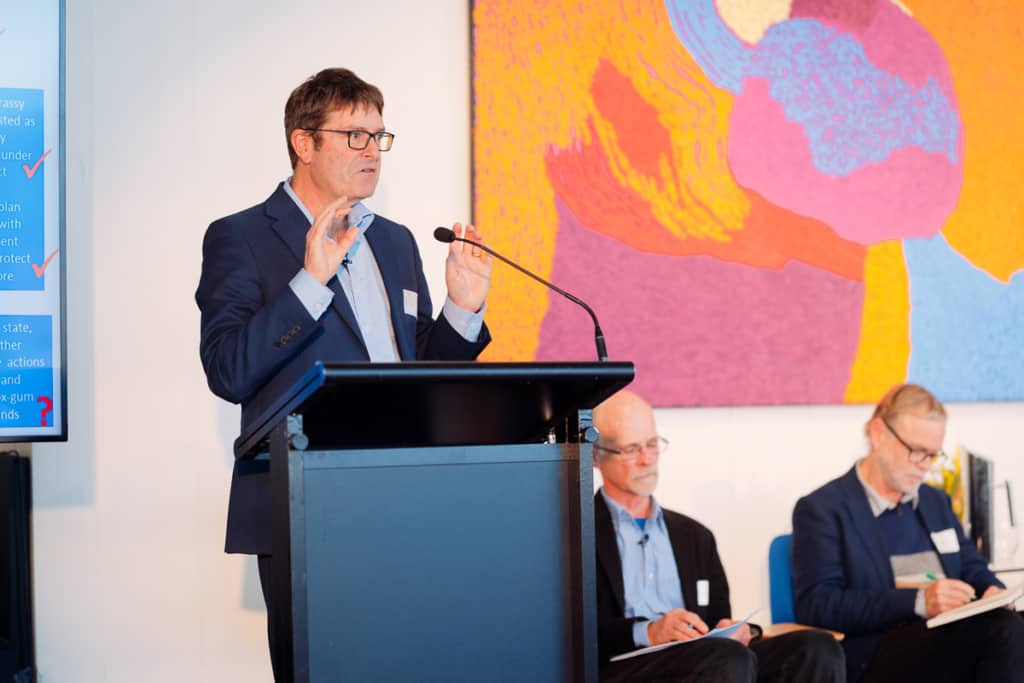
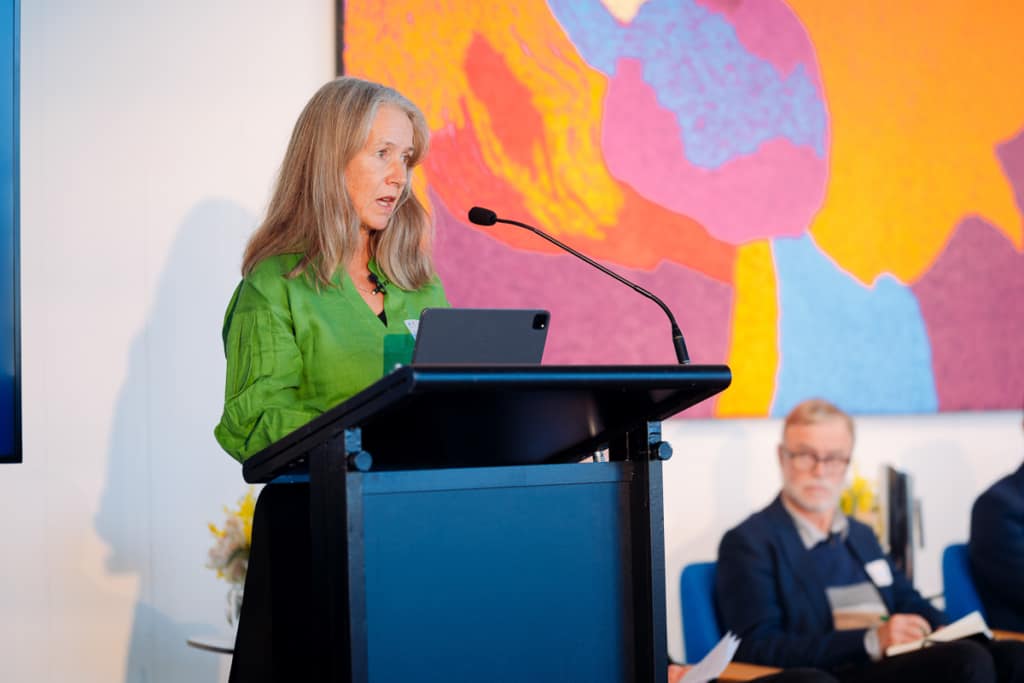
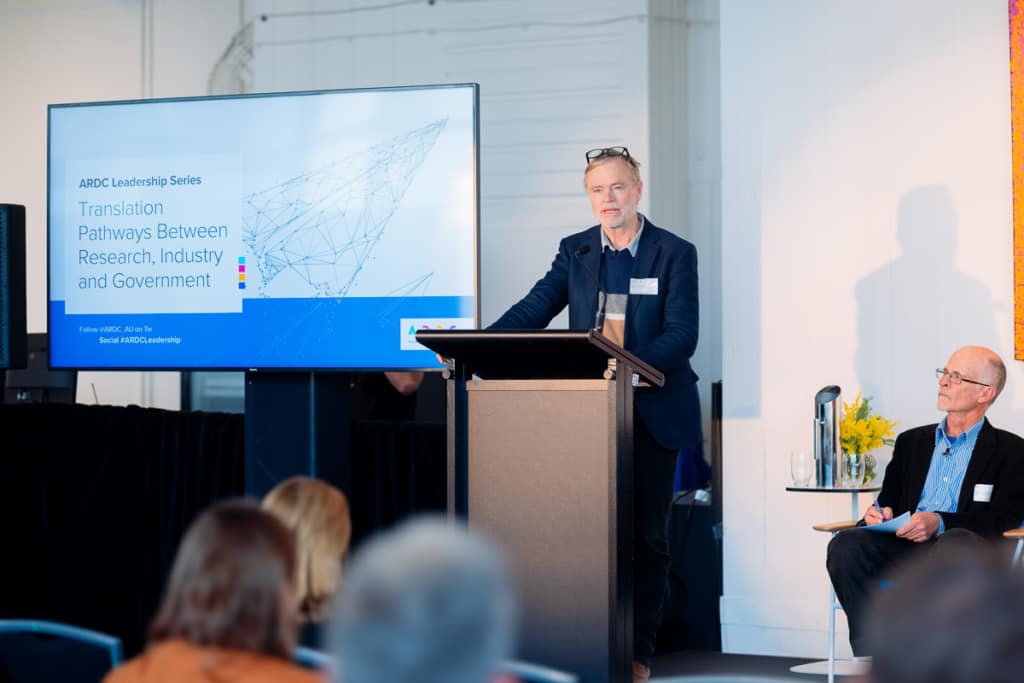
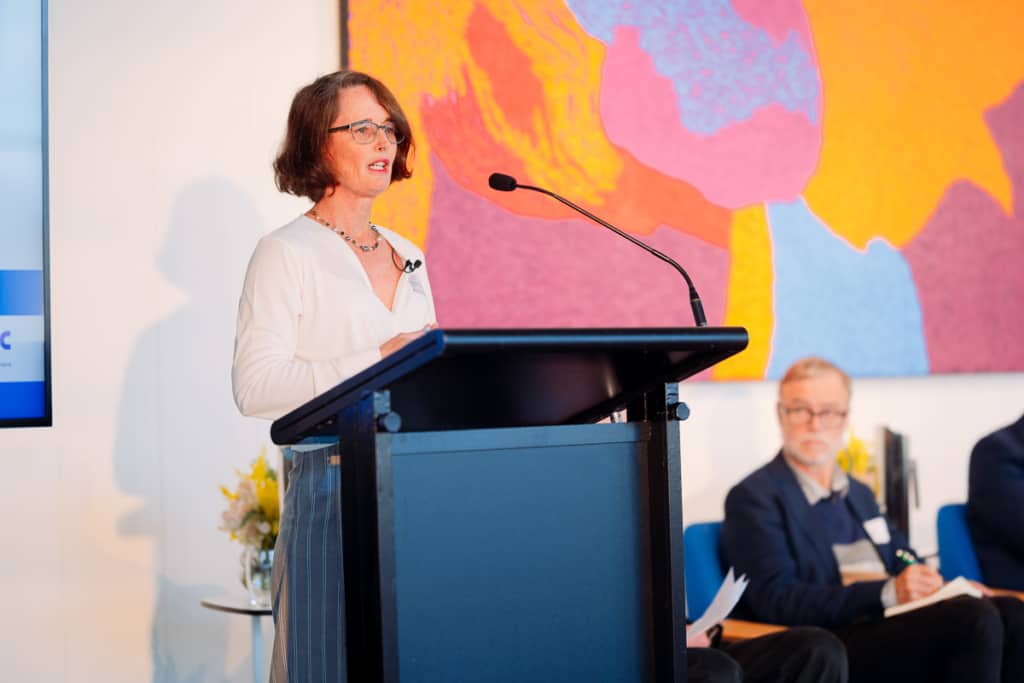
The ARDC is funded through the National Collaborative Research Infrastructure Strategy (NCRIS) to support national digital research infrastructure for Australian researchers.

